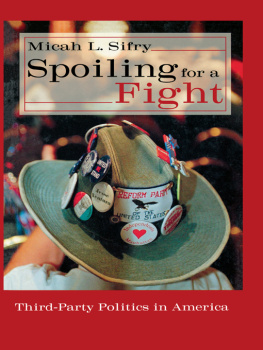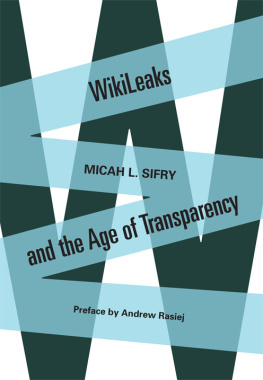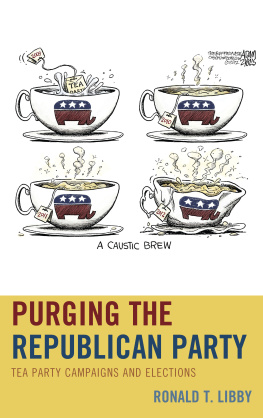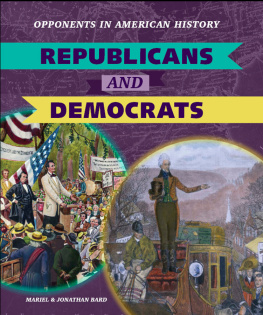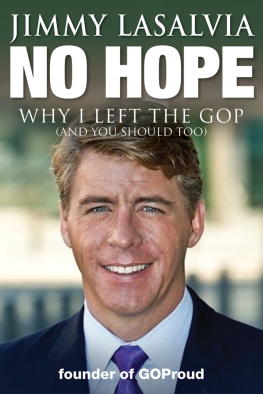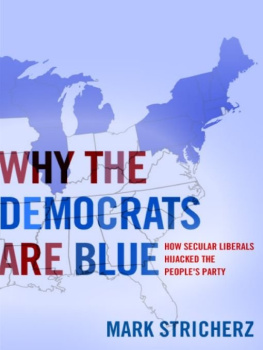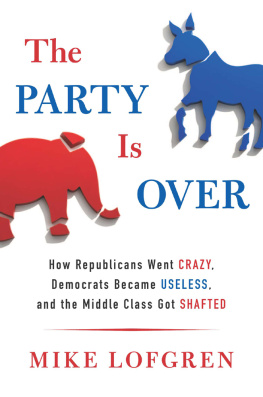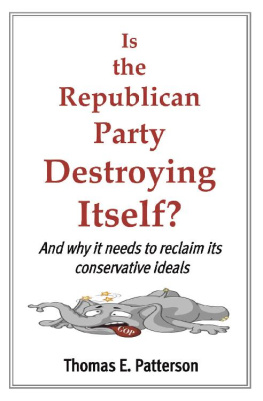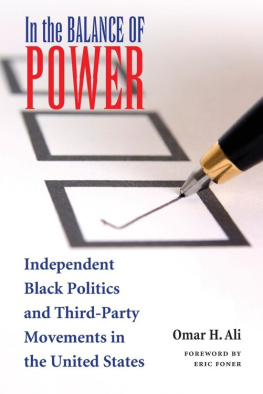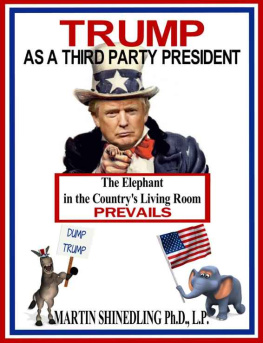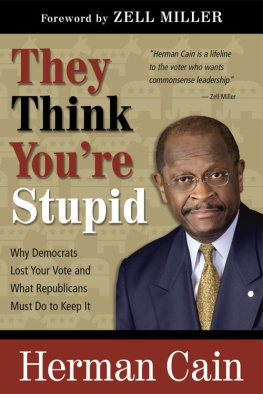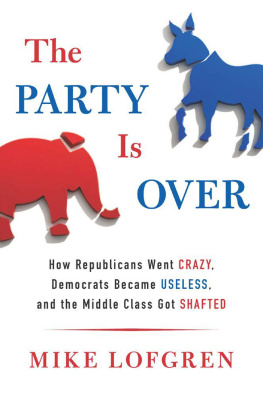More Praise for
Spoiling for a Fight
Theres no more important question for the future of American politics than whether we will ever get out of the two-party sandbox. For years, Micah Sifry has been the leading reporter on that beat. The answers he gives us in Spoiling for a Fight are both sobering and empowering. Whether you like Ross Perot, Jesse Ventura, and Ralph Nader or want to wring their necks, youve got to read this book.
Arianna Huffington, author of How to Overthrow the Government
Presents a vivid tapestry of the problems faced by, as well as the enormous potential promise of, alternative political parties. Always optimistic, Sifry is never nave, and presents a balanced, important, and enlightened new way to think through the political process.
Publishers Weekly
No one knows third-party politics like Micah Sifry. Spoiling for a Fight deftly dissects the presidential campaign of Ralph Nader, probes the phenomenon of Perotmania, and deconstructs bad boy/independent Jesse Ventura. Sifry delves deeply into the real story of todays outside-the-box politics and the threat posed by third parties to the stuck-in-the-muck two-party system. The past, present, and future of Americas third parties: is all here.
David Corn, Washington Editor, The Nation
A riveting history of some minor party activity during the period 19902001. Sifry is perhaps the only person who could have written this book. Spoiling for a Fight is so entertaining, one can hardly put it down.
Richard Winger, Ballot Access News
Micah L. Sifry , formerly an editor at The Nation , is Senior Analyst at Public Campaign, a nonpartisan campaign finance reform group. He is co-editor of The Gulf War Reader , and his work has appeared in the New York Times, The Nation, The American Prospect, The Progressive, Salon, Wired , and Tikkun .
Spoiling for a Fight

Published in 2003 by
Routledge
711 Third Avenue
New York, NY 10017
www.routledge-ny.com
Published in Great Britain by
Routledge
2 Park Square, Milton Park
Abingdon, Oxon OX14 4RN
www.routledge.co.uk
First Routledge hardback edition, 2002
First Routledge paperback edition, 2003
Copyright 2003 Routledge
Routledge is an imprint of the Taylor & Francis Group.
All rights reserved. No part of this book may be reprinted or reproduced or utilized in any form or by any electronic, mechanical, or other means, now known or hereafter invented, including photocopying and recording, or in any information storage or retrieval system, without permission in writing from the publisher.
Library of Congress Cataloging in Publication Data
Sifry, Micah L.
Spoiling for a fight: third-party politics in America / Micah L. Sifry.
p. cm.
Includes bibliographical references and index.
1. Third parties (United States politics).
2. United StatesPolitics and government19932001.
I. Title
JK2265.S562002
324.273dc212001048181
For Mira, Jesse, and Leslie
Contents
Our movement needs both its pragmatists and its dreamers, its inside-players and its Utopian outsiders. We would never have begun without the dreamers, and never have lasted without the pragmatists.
Barbara Ehrenreich
Authors Note and Acknowledgments
I have long been fascinated by the path less traveled: short-cuts through a neighbors backyard, aqueduct trails, blue highways, river beds, cobble-stone paths in the heart of a modern city, abandoned railway lines that have been converted to bike trails. Theres something in me that loves anything that doesnt conform to the rigid grid of checkerboard property lines and suggests a different, more interesting, way of getting from here to there.
My interest in third-party politics stems from a similar root. I dont believe the path to wisdom leads solely through the Democratic and Republican parties, far from it. If anything, history makes clear that many of the innovations and improvements in this country that we hold dear began at the margins, in the campaigns and pressures mobilized by third parties. Periodic explosions of third-party sentiment have forced the major parties to change direction and attend to new issues.
For the last ten years, we have been living through such a moment in American history, one that I believe is still unfinished. The issue is not simply getting government spending under control, which many believe was the signal contribution of Ross Perots 1992 campaign and the third-party movement centered on his Reform Party. The issue is putting the people in greater control of the decisions that affect their own lives, and whether we will be a plutocracy or a democracy.
The thesis of this book, which was completed well in advance of September 11, 2001, was that the public wanted greater choices in politics than were currently on offer from the Democrats and Republicans, but that Americas leading third parties still had a long way to go before they could fill that vacuum.
Now the stakes for everyone seem higher. In the days after the attacks on the World Trade Center and the Pentagon, public distrust in our national leadersso long a staple of post-Vietnam, post-Watergate politicstook a dramatic drop. People were impressed with the initial actions of their leaders, and there also seemed to be a yearning for something we were not sure we would get: wise leadership capable of handling the twin crises of international terrorism and economic recession. On first glance, this would suggest that the moment for third-party organizing had suddenly gotten much less ripe.
Maybe yes and maybe no. In my opinion, faith in government after September 11 also rose because the long-standing gap between our ruling elites and average voters seemingly disappeared in the days and weeks after the attacks. To most Americans, government no longer meant a faceless bureaucrat or an arrogant politician; it meant a courageous rescuer or brave soldier. Instead of serving special interests, we seemed to have a government serving our common interest. Instead of distant representatives hobnobbing with Fortune 500 fatcats, we had senators and mayors who walked among the people. We were all humbled, equally, by the horrendous events of the 11th, and in that newfound equality many glimpsed new promise for American democracy.
Our current leaders could keep this moment going. Nothing is forcing them to return to their old habits. But the underlying fundamentals of Americas political economy were not changed by September 11. Elections were not cancelled by the attacks, and big money certainly did not stop dominating campaigns and distorting legislation. The messy struggles of politics, of who gets what and who doesnt, continued, only now with choices that seemed starker. The tragedy elevated the national leaders of the Republican and Democratic parties, from President Bush on down, but it also presented them with greater challenges. Success may give the major parties new life and a greater hold on the electorate; failure may topple them faster than we can imagine.
Still, past history suggests a pessimistic prospect for third parties, at least in the short term. Life in America during wartime, whether cold war or hot, has never been welcoming of dissenting voices or minority groups. The nation quite naturally rallies around the flag and its elected leaders. Official censorship commingles with self-censorship, and people who ask inconvenient questions are tarred as disloyal, even traitorous.

